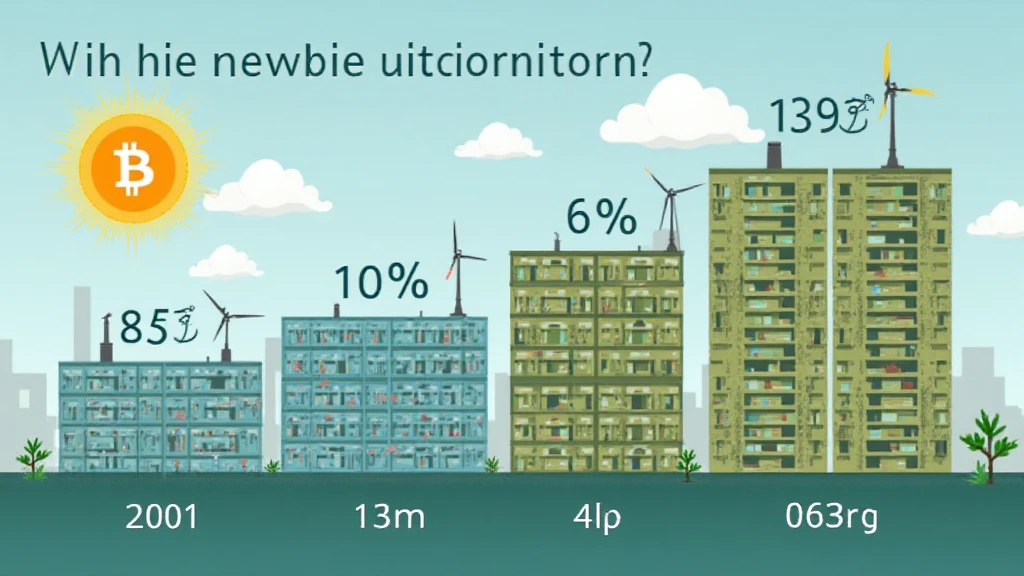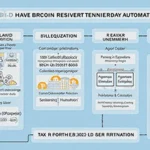Navigating the Future: Bitcoin Blockchain and Energy Policies
With the world shifting towards renewable energy, the energy consumption of the Bitcoin blockchain has come under scrutiny. In 2024 alone, it was estimated that over $10 billion was spent on energy for Bitcoin mining. This high energy demand raises questions about sustainability and environmental impact which are crucial for the future of digital currencies.
This article explores the intertwined relationship between Bitcoin blockchain and energy policies, highlighting the significance of sustainable practices and regulatory compliance in shaping the future of cryptocurrencies.
The Energy Demand of Bitcoin Mining
Bitcoin mining involves solving complex mathematical problems, which requires significant computational power and, subsequently, vast amounts of energy. According to a report by the Cambridge Centre for Alternative Finance, the Bitcoin network consumes about 130 TWh per year, comparable to the energy consumption of some small countries. Here’s how this affects the landscape:

- Carbon Footprint: The reliance on fossil fuels increases the carbon emissions associated with Bitcoin.
- Regulatory Actions: Governments worldwide are imposing restrictions or enhancing regulations on energy use in cryptocurrency mining.
- Renewable Energy Sources: There’s a growing movement towards utilizing renewable energy for mining operations.
Current Energy Policies Affecting Bitcoin
Across the globe, various jurisdictions are implementing energy policies that impact the Bitcoin blockchain landscape. In the United States, for instance:
- Texas Initiative: Texas has become a hotspot for Bitcoin miners due to its deregulated power grid and abundance of renewable energy sources like wind and solar.
- New York’s Moratorium: Conversely, New York State has placed a moratorium on certain types of Bitcoin mining due to environmental concerns. This highlights varying regional approaches.
Challenges and Opportunities in Vietnam’s Crypto Landscape
As the Vietnamese cryptocurrency market grows—projected to reach a user base of over 5 million by 2025—the potential for regulatory frameworks and energy policies becomes crucial. Key points include:
- Market Growth: Vietnam shows a tremendous growth rate in crypto adoption; this might attract more investment into eco-friendly mining options.
- Energy Regulations: The Vietnamese government is focusing on energy sustainability, which could lead to stricter regulations on mining activities.
- Blockchain Innovation: Local startups are developing initiatives to use sustainable energy sources in blockchain operations.
Understanding Sustainability Practices in Bitcoin Mining
Sustainability in Bitcoin mining is not just about the source of energy used but also about efficiency and technology. Key practices include:
- Renewable Energy: Mining operations powered by solar, wind, or hydroelectric energy drastically reduce carbon footprints.
- Energy-efficient Hardware: Utilizing efficient mining rigs can significantly lower energy consumption.
- Use of Waste Energy: Some innovative companies are using energy that would otherwise be wasted from oil drilling or other processes.
The Road Ahead: Balancing Profit with Responsibility
Moving forward, Bitcoin miners can no longer ignore their environmental impact. As public awareness grows, the expectation for responsible mining practices intensifies. Here’s how the industry can adapt:
- Government Collaborations: Engage with regulators to create comprehensive policies that foster sustainable mining.
- Public Engagement: Informing the public about the steps being taken to enhance sustainability can foster goodwill.
- Invest in Green Technology: Enhance investment in technologies that promote renewable energy use.
Conclusion: A Sustainable Future for Bitcoin Blockchain
The future of Bitcoin blockchain hinges upon its ability to adapt to energy policies and sustainability demands. As Vietnam’s market expands, it will play a pivotal role in shaping these dynamics within Asia. Incorporating strong energy policies not only assures compliance but also supports the health of the planet.
Engaging with local and international energy frameworks will ensure that Bitcoin blockchain is not just a profitable venture but also a responsible one. Let’s make informed choices that pave the way for innovation while reducing our carbon footprints.
As we look toward 2025 and beyond, the evolution of Bitcoin must consistently align with energy sustainability, providing a balanced approach to the future of finance.
For more insightful analyses, visit officialcryptonews.





